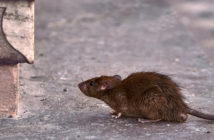Defra, via the Law Commision, has released a consultation document outlining their proposals to update wildlife law.
These proposals are of direct relevance to practical pest controllers, as amongst other things, they include new powers to address ‘invasive species’ – such as grey squirrels.
The current law regulating wildlife is spread over a collection of Acts dating back to 1831. The original purpose of much of the law was to govern activities such as hunting and fishing, including poaching. Over the years it has expanded to conserve certain species, ensure the welfare of wildlife and protect local biodiversity from invasive species.
| The result is a legal landscape that is out of date, confused and often contradictory. For example, the hunting, management and welfare of pheasants is governed by four separate statutes. Much of the older legislation is out of step with modern requirements, and the principal modern Act – the Wildlife and Countryside Act 1981 – has been amended to such a degree that it is difficult for any non-specialists to use.
The proposals currently being put forward by the Law Commission aim to simplify the existing complex framework, placing wildlife law into a single statute. The new regime would reduce the current dependency on criminal law, by allowing an appropriate mix of regulatory measures such as guidance, advice and a varied and flexible system of civil sanctions – such as fines and bans. Law Commissioner Frances Patterson QC, says: “We are seeking to achieve a balance between the needs of those people who want to manage wildlife and those who want to protect it. What we are proposing does not alter the levels of protection currently offered to wildlife but it will help people understand what their obligations and duties are and what they can and cannot do, and ensure they are properly licensed to do it.” |
|
|
| The Law Commission is now consulting on provisional proposals, with consultation ending 30 November 2012. The Law Commission wildlife team can be reached on [email protected].
The full consultation papers and how to respond can be found on the Law Commission website – click here. These proposals are likely to cause considerable controversy between those keen to stamp out ”vermin” and those who wish to preserve the status quo. |
||

 Time-up for invasive species?
Time-up for invasive species?

